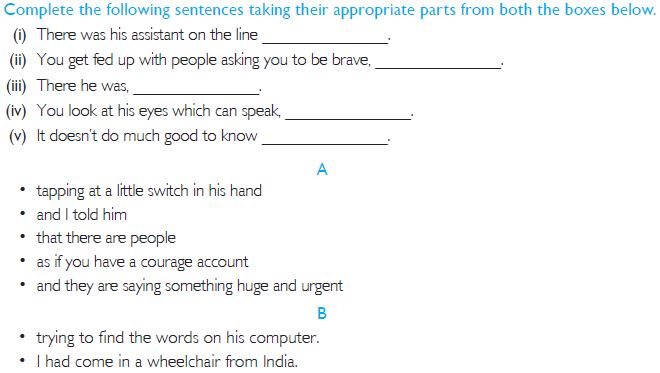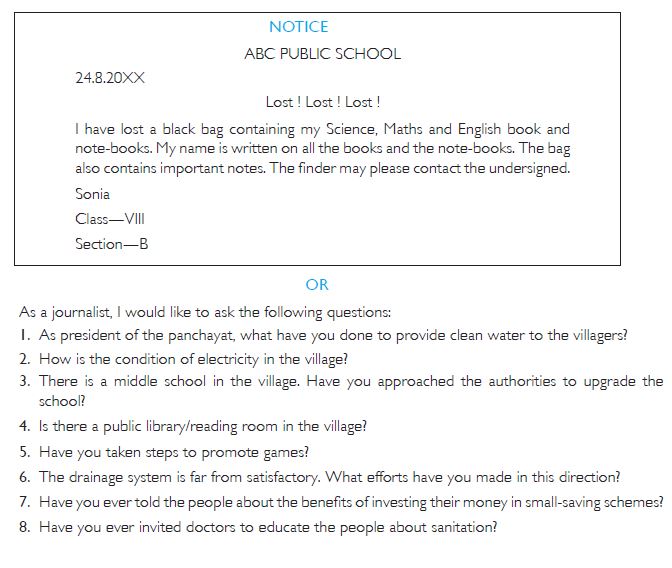Question 1:

Answer:
traveller
Question 2:

Answer:
guidance
Question 3:

Answer:
successor
Question 4:

Answer:
paled
Question 5:

Answer:
chaired
Question 5:

Answer:
truly
Question 6:

Answer:
drawn
Question 7:
Use all or both in the blanks. Tell your partner why you chose one or the other. He has two brothers. ____________ are lawyers.
Answer:
Both
Question 7:
Use all or both in the blanks. Tell your partner why you chose one or the other. More than ten persons called. ____________ of them wanted to see you.
Answer:
All
Question 8:
Use all or both in the blanks. Tell your partner why you chose one or the other. They ____________ cheered the team.
Answer:
all
Question 8:
Use all or both in the blanks. Tell your partner why you chose one or the other. ____________ her parents are teachers.
Answer:
Both
Question 9:
Use all or both in the blanks. Tell your partner why you chose one or the other. How much have you got? Give me ____________ of it.
Answer:
all
Question 10:
Complete each sentence using the right form of the adjective given in brackets. My friend has one of the ____________ cars on the road. (fast)
Answer:
fastest
Question 11:
Complete each sentence using the right form of the adjective given in brackets. This is the ____________ story I have ever read. (interesting)
Answer:
most interesting
Question 12:
Complete each sentence using the right form of the adjective given in brackets. What you are doing now is ____________ than what you did yesterday. (easy)
Answer:
easier
Question 12:
Complete each sentence using the right form of the adjective given in brackets. Ramesh and his wife are both ____________. (short)
Answer:
short
Question 13:
Complete each sentence using the right form of the adjective given in brackets. He arrived __________ as usual. Even the chief guest came __________ than he did. (late, early)
Answer:
late, earlier
Question 14:
Which is the right sentence?
‘Cambridge was my metaphor for England.’ To the writer,
(i) Cambridge was a reputed university in England.
(ii) England was famous for Cambridge.
(iii) Cambridge was the real England.
Answer:
Cambridge was the real England.
Question 15:
Which is the right sentence?
The writer phoned Stephen Hawking’s house
(i) from the nearest phone booth.
(ii) from outside a phone booth.
(iii) from inside a phone booth.
Answer:
from outside a phone booth
Question 16:
Which is the right sentence?
Every time he spoke to the scientist, the writer felt guilty because
(i) he wasn’t sure what he wanted to ask.
(ii) he forced the scientist to use his voice synthesiser.
(iii) he was face to face with a legend.
Answer:
he forced the scientist to use his voice synthesiser.
Question 17:
Which is the right sentence?
‘I felt a huge relief.....in the possibilities of my body.’ In the given context, the highlighted
words refer to:
(i) shifting in the wheelchair, turning the wrist.
(ii) standing up, walking.
(iii) speaking, writing.
Answer:
shifting in the wheelchair, turning the wrist
Question 18:
Did the prospect of meeting Stephen Hawking make the writer nervous? If so, why?
Answer:
Yes, the writer felt nervous on the prospect of meeting Stephen Hawking. He was nervous because he was tired of people asking him to be brave. He didn’t want Stephen to treat him like that.
Question 19:
Did he at the same time feel very excited? If so, why?
Answer:
Yes, he felt excited at the same time because he considered Stephen Hawking his inspiration. He felt that meeting somebody of his own kind would give him strength to meet challenges of life in a better way.
Question 20:
Guess the first question put to the scientist by the writer.
Answer:
The writer must have asked the scientist how he had been so brave.
Question 21:
Stephen Hawking said, ‘‘I’ve had no choice.’’ Does the writer think there was a choice? What was it?
Answer:
Yes, the writer thought that there was a choice. The choice was to live creatively without caring for his disability.
Question 22:
‘I could feel his anguish.’ What could be the anguish ?
Answer:
The anguish was the feeling of helplessness. Stephen’s fingers were pale and mind frustrated. He could not even speak properly.
Question 23:
What endeared the scientist to the writer so that he said he was looking at one of the most beautiful men in the world ?
Answer:
The author was not looking at the outward beauty rather he was talking about inner beauty. Stephen was a strong and brave man with a good heart.
Question 24:
Read aloud the description of ‘the beautiful’ man. Which is the most beautiful sentence in the description?
Answer:
Most beautiful line of the description is: Before you, like a lantern whose walls are worn, so thin that you glimpse only the light inside, is the incandescence of a man.
Question 25:
(i) If ‘the lantern’ is the man, what would its ‘walls’ be?
(ii) What is housed within the thin walls?
(iii) What general conclusion does the writer draw from the comparison?
Answer:
(i) Here ‘walls’ refer to the body which is weak and without any strength.
(ii) Within those thin walls are the thoughts and feelings of the human being and a mind which is
full of emotions.
(iii) The writer feels that what we think and feel is more important than whether we can walk and
stand.
Question 26:
What is the scientist’s message for the disabled?
Answer:
Do only those things at which you are good. Do not waste time in trying to do things which are beyond your reach.
Question 27:
Why does the writer refer to the guitar incident? Which idea does it support?
Answer:
The writer refers to the guitar incident because he had wasted a lot of time in this exercise. It supports the idea that one should only concentrate on those things at which they are good.
Question 28:
The writer expresses his great gratitude to Stephen Hawking. What is the gratitude for?
Answer:
The gratitude is for not treating his disability as a weakness. Hawking overpowers it and emerges as an inspiration for other disabled people.
Question 29:


Answer:

Question 30:
Look at the following words:
walk stick
Can you create a meaningful phrase using both these words ?
(It is simple. Add -ing to the verb and use it before the noun. Put an article at the beginning.)
. . . a walking stick
Now make six such phrases using the words given in the box.
read/session
smile/face
revolve/chair
walk/tour
dance/doll
win/chance
Answer:
Students will do themselves.
Question 31:
Writing a notice for the School Notice Board.
Step 1
Discuss why notices are put up on the notice board.
What kinds of ‘notices’ have you lately seen on the board?
How is a notice different from a letter or a descriptive paragraph?
Step 2
Suppose you have lost or found something on the campus. What have you lost or found?
You want to write a notice about it. If you have lost something, you want it restored to you
in case someone has found it. If you have found something, you want to return it to its owner.
Step 3
Write a few lines describing the object you have lost or found. Mention the purpose of the notice in clear terms. Also write your name, class, section and date.
Step 4
Let one member of each group read aloud the notice to the entire class. Compare your notice with the other notices, and make changes, if necessary, with the help of the teacher.
- Imagine that you are a journalist.
- You have been asked to interview the president of the village panchayat.
- Write eight to ten questions you wish to ask.
- The questions should elicit comments as well as plans regarding water and electricity, cleanliness and school education in the village.
Answer:

